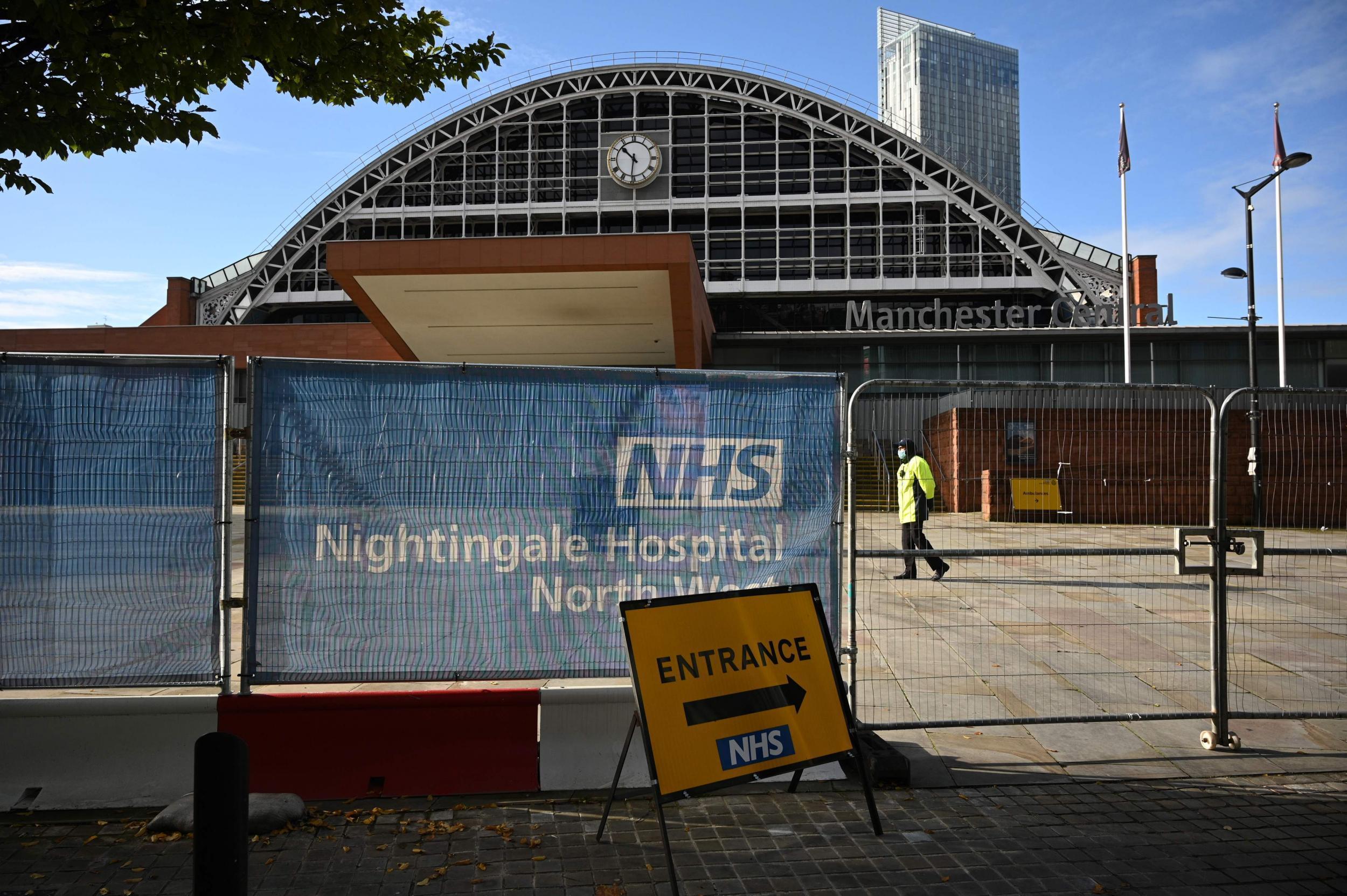NHS plans for ‘mini-Nightingale’ hospitals in car parks in battle against Omicron
All hospitals nationally asked if they can host temporary facilities to cope with new Covid wave

Your support helps us to tell the story
From reproductive rights to climate change to Big Tech, The Independent is on the ground when the story is developing. Whether it's investigating the financials of Elon Musk's pro-Trump PAC or producing our latest documentary, 'The A Word', which shines a light on the American women fighting for reproductive rights, we know how important it is to parse out the facts from the messaging.
At such a critical moment in US history, we need reporters on the ground. Your donation allows us to keep sending journalists to speak to both sides of the story.
The Independent is trusted by Americans across the entire political spectrum. And unlike many other quality news outlets, we choose not to lock Americans out of our reporting and analysis with paywalls. We believe quality journalism should be available to everyone, paid for by those who can afford it.
Your support makes all the difference.NHS hospitals have been asked if they can host temporary “field” hospitals amid fears over bed capacity as Omicron admissions rise.
Senior NHS sources have said all hospitals nationally have been asked if they could host these temporary facilities, which could be run like “mini-Nightingale hospitals” in their car parks.
However, several trust leaders said it was not clear how these temporary hospitals would be actually be used and that it was highly unlikely the NHS would be able to staff them.
The Nightingale hospitals were large field hospitals built in London, Birmingham, Bristol, Cumbria, Exeter, Harrogate and Manchester during the first Covid wave.
However, the hospitals were not widely used during either the first or second waves and were wound down earlier this year.
The plans, first reported by the Health Service Journal, comes amid rising concerns over the coming wave in Covid admissions in January. According to the HSJ report, trusts were also asked to review their mortuary capacity.
Over the last week NHS leaders have been asked to submit plans to expand their bed base “in extremis” one executive said.
It comes as sources say that the level of patients in hospital who are ready to go home but haven’t been discharged yet is higher than ever. One source in the West Midlands said a major hospital was looking at using hotels to enable patients to be discharged.
On Tuesday, The Independent reported that hospitals in the Midlands had been asked to prepare for a “mass casualty” event in January, and submit plans to rapidly increase beds to tackle a short spike.
It is unclear exactly how many admissions the NHS will see due to the new variant, although early data from the UK Health Security Agency has suggested the risk of hospital admission was roughly 80 per cent lower for people infected with Omicron compared with Delta, while for those in hospital the risk of severe disease was roughly 30 per cent lower.
However, the scientists behind the South African study warned immunity from infection or vaccination is likely to explain some of the reduction in risk.
In the northwest hospitals were told to plan for a peak in admissions which could be as high as the first wave, while sources in the northeast and Yorkshire were told its peak could be anything between 70 to 200 per cent of the first wave.




Join our commenting forum
Join thought-provoking conversations, follow other Independent readers and see their replies
Comments